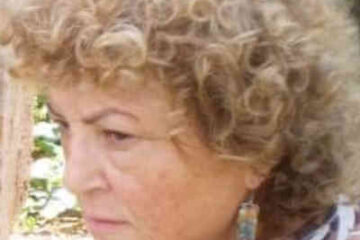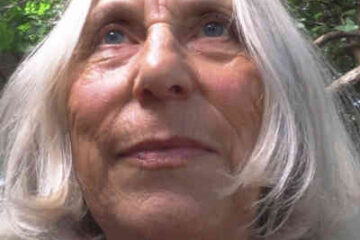Click here to read the PDF version![]()
It was perhaps the passing time that elevated it to idyll,
that little girl’s standing on one small balcony,
her fear of being discovered,
the joy of being alive
from the fifth floor, looking onto the trees in the courtyard,
surrounded by curious eyes of windows, flickering electric
lights, and from the distance,
slivers of a broken song
I flee to this balcony whenever, at home, the quarrels flare up
from silenced memories, hiding the unspeakable, quarrels
inconsequential to existence,
to theirs, to mine
it is my secret shelter, this balcony, at the last turn of the corridor
on the top floor of one neighboring building whose gate is always
open, here I am free to imagine
being chased
I hold my breath, my body pressed to the rusty grid, it’s my secret,
this hiding, I won’t tell where, for who knows what may still come,
let no one see me, thank God that
we live in peacetime
I dream the balcony-dream: to be, simply and without effort, one among
the good neighbors behind the blinking windows, I dream of belonging
to those who can live without
death carved on their genes
these evening hours are my paradise, and my ritual of becoming
one with them, let my life dissolve in the sound of their talking,
the smell of cooking, blinking lights,
the crying of a baby
that baby will stand on this balcony one day, for there must have been
someone before me, another girl who lived with the great fear
while dreaming of heaven
But all that was long ago.
Today, a wise grownup, at the side of my aging mother, her stories emerge
like shards and splinters, I open the window and spring’s gentle breeze
invades our room
she tells me something she never told before, how she hid on one
balcony of a nearby house (whose gate always was left open),
a balcony on the fifth floor
she pressed her body to the grid, so that the “those hunting us”
could not find her, “I went there when death was all around,
and that courtyard was my Gan Eden”.
On that same balcony, decades apart, two lives withstood the temptation of falling,
and paradise unfolded against the fear of death, two little girls spread their wings
— the terrifying greatness of the child’s universe —
always ashore, always in flight, weightless, unseen

